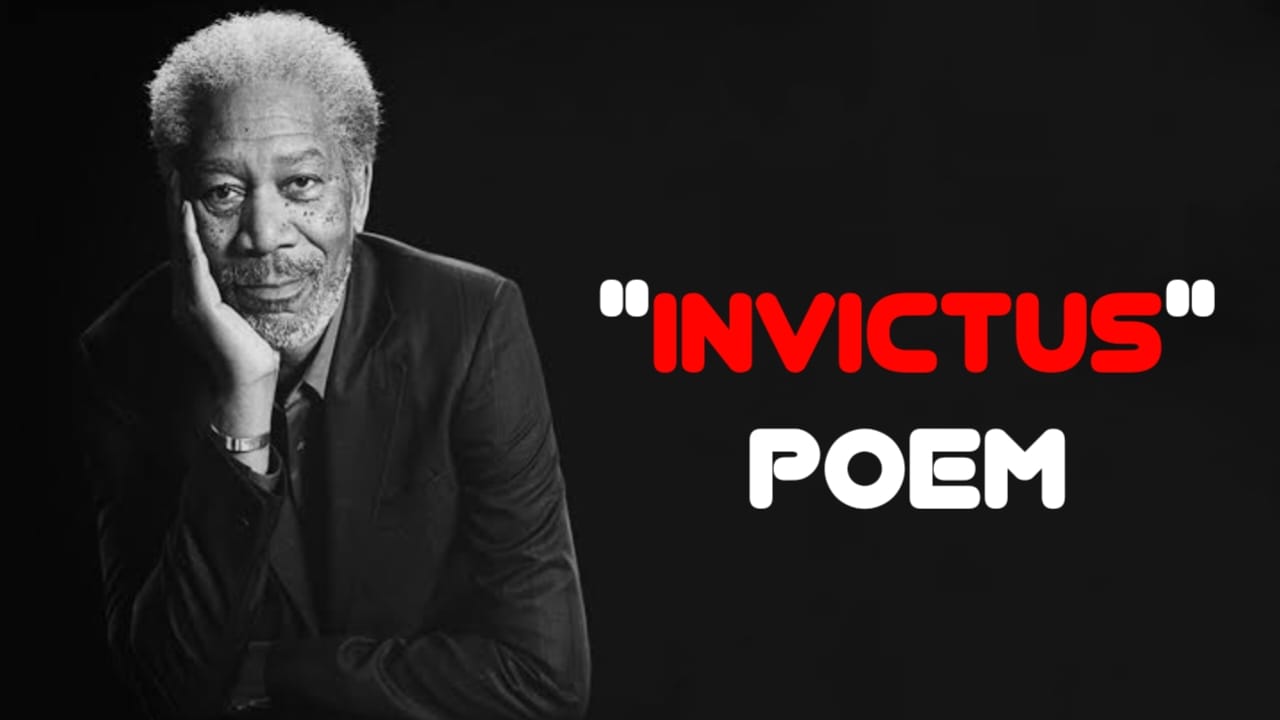Invictus Poem PDF Free Download
In the realm of inspirational poetry, the “Invictus” poem by William Ernest Henley stands as a testament to the indomitable human spirit. With its powerful verses and timeless message, this poem has resonated with countless individuals, offering solace and strength in the face of adversity. In this article, we will delve into the profound meaning of the “Invictus Poem“, dissecting its verses and exploring the resilience it imparts.

The Origin of “Invictus”
1. The Background of the Poet
To truly understand the essence of the “Invictus” poem, it’s crucial to explore the life of its creator, William Ernest Henley. Henley, a 19th-century English poet, faced numerous personal challenges, including a debilitating bout of tuberculosis that led to the amputation of one of his legs.
2. Henley’s Inspirational Journey
Henley’s personal struggles served as the crucible for his poetry. During his stay in the Royal Infirmary in Edinburgh, he penned “Invictus” as an affirmation of his unwavering spirit and determination to overcome adversity. The poem was first published in 1888 and has since become an enduring masterpiece.
Deciphering “Invictus” Line by Line
3. “Out of the night that covers me”
The poem’s opening line sets the tone for resilience in the face of darkness. Henley’s choice of words paints a vivid picture of a person enveloped in hardship but undeterred.
4. “Black as the pit from pole to pole”
Here, Henley describes the depth of his struggles, comparing them to the profound darkness that seems all-encompassing. This metaphor encapsulates the feeling of being surrounded by challenges.
5. “I thank whatever gods may be”
This line introduces the idea of gratitude in the midst of adversity. Henley acknowledges the presence of higher powers, implying that even in the bleakest moments, there’s something to be thankful for.
6. “For my unconquerable soul.”
The heart of the poem, this line reaffirms the resilience of the human spirit. Henley declares his soul to be “unconquerable,” signifying an unwavering resolve to overcome any obstacle.
7. “In the fell clutch of circumstance”
Henley vividly portrays life’s challenges as a relentless adversary. The word “clutch” conveys the idea of being seized or grasped by fate.
8. “I have not winced nor cried aloud.”
In these lines, Henley showcases stoicism and fortitude. He emphasizes his refusal to display weakness or surrender to pain.
9. “Under the bludgeonings of chance”
This metaphor paints life’s hardships as brutal blows. Henley’s choice of words underscores the relentless and unpredictable nature of adversity.
10. “My head is bloody, but unbowed.”
Henley’s imagery here is powerful. Despite the wounds inflicted by life’s trials, he maintains his head high and unbowed, symbolizing his unbroken spirit.
Also Read This : Lotería Nacional
The Universal Appeal of “Invictus”
11. Inspiring Generations
The enduring appeal of “Invictus” lies in its ability to inspire individuals across generations. Its message of resilience resonates with anyone facing challenges, be it physical, emotional, or spiritual.
12. Application in Modern Context
In today’s fast-paced world, the “Invictus” poem remains relevant. Its call to confront adversity with unwavering determination and courage is a timeless reminder of human strength.
13. Popular Culture References
The poem has found its way into popular culture, referenced in movies, books, and speeches. It continues to be a source of motivation for many.
Conclusion
In a world fraught with trials and tribulations, the “Invictus Poem” shines as a beacon of hope and determination. Its verses, penned by a poet who faced his own share of hardships, serve as a reminder that the unconquerable soul resides within us all. When confronted with life’s challenges, we can draw strength from the resilience exemplified in “Invictus.”
FAQs (Frequently Asked Questions)
Que : Who was William Ernest Henley?
Ans : William Ernest Henley was a 19th-century English poet known for his poem “Invictus.” He faced personal challenges, including health issues, which inspired his poetry.
Que : What is the central message of “Invictus”?
Ans : The central message of “Invictus” is one of resilience and unwavering determination in the face of adversity.
Que : Has “Invictus” been adapted into other forms of media?
Ans : Yes, “Invictus” has been referenced and adapted in various forms of media, including movies, books, and speeches.
Que : Why is the poem titled “Invictus”?
Ans : “Invictus” is a Latin word that translates to “unconquered” or “unconquerable,” reflecting the theme of the poem.
Click Here To Download For Free PDF








